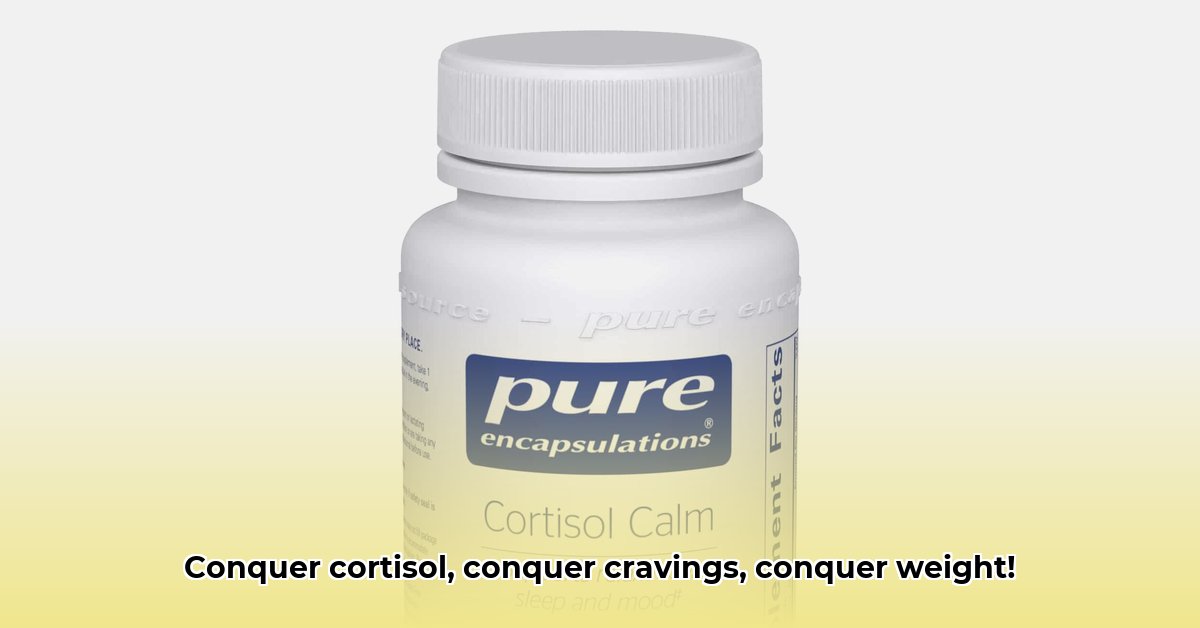
Let's talk about stress, weight, and the hormone cortisol—often the hidden culprit behind those extra pounds. High cortisol levels, frequently stemming from chronic stress, can disrupt your metabolism and increase cravings for unhealthy foods. This guide provides actionable steps to manage cortisol naturally and achieve sustainable weight loss. It's not about quick fixes, but a holistic approach to better health.
Understanding the Cortisol-Weight Connection
Cortisol is your body's natural stress response hormone. Short-term cortisol release, triggered by stressful events, provides energy and focus. However, chronic stress keeps cortisol levels elevated, leading to metabolic disruption and weight gain. High cortisol can increase appetite, especially for sugary and fatty foods, and slow metabolism, hindering weight loss efforts. Isn't it frustrating to feel as if your body is working against you?
Identifying Your Cortisol Triggers
Before tackling solutions, identify your cortisol triggers. Common culprits include:
- Chronic Stress: Work pressure, relationship issues, financial worries—everyday stressors contribute to high cortisol.
- Insufficient Sleep: Lack of quality sleep disrupts hormone balance, including cortisol. Aim for 7-9 hours of restful sleep.
- Poor Diet: Processed foods, excessive sugar, and caffeine can trigger cortisol spikes.
- Lack of Exercise: Regular physical activity helps regulate cortisol. Even moderate exercise is beneficial.
- Underlying Medical Conditions: In some cases, medical conditions influence cortisol levels. Consult a doctor if you suspect this is the case.
Natural Strategies for Cortisol Management and Weight Loss
The good news? You can actively manage your cortisol levels. Here's how:
1. Stress Reduction Techniques
- Mindfulness and Meditation: Daily mindfulness practices, even short sessions, can significantly reduce stress.
- Deep Breathing: Simple breathing techniques calm the nervous system. Try box breathing (inhale 4 seconds, hold 4, exhale 4, hold 4).
- Yoga and Tai Chi: These combine gentle movement and mindfulness for holistic stress reduction. Have you tried these yet? Many find them incredibly effective.
2. Dietary Changes for Cortisol Control
- Prioritize Whole Foods: Focus on nutrient-rich foods such as fruits, vegetables, lean proteins, and whole grains.
- Limit Sugar: Reduce processed foods and sugary drinks; they are significant cortisol triggers. Even small changes can make a difference.
- Stay Hydrated: Dehydration can worsen the stress response, so drink plenty of water.
3. Sleep Hygiene for Optimal Cortisol Regulation
Aim for consistent sleep (7-9 hours) each night. Establish a calming bedtime routine and create a sleep-conducive environment (dark, quiet, and cool). Avoid screens before bed. How's your sleep quality been lately?
4. The Power of Exercise
Moderate-intensity exercise aids cortisol regulation. Find an activity you enjoy (walking, swimming, cycling) and aim for at least 30 minutes most days.
5. Supplements: Use with Caution and Medical Guidance
Some supplements may help manage cortisol, but research is ongoing and results vary. Always consult your doctor before using supplements, especially if you take other medications. Examples include ashwagandha and omega-3 fatty acids.
When to See a Doctor
If you've consistently implemented these strategies and still struggle with stress or weight, seek professional medical advice. A healthcare provider can rule out underlying medical conditions and offer personalized guidance.
Cortisol Calm Weight Loss: A Holistic Approach
Achieving cortisol calm weight loss is a journey, not a sprint. Combine these lifestyle changes with professional support when needed for sustainable results. Remember to celebrate your progress along the way. It’s crucial to prioritize consistent effort over rapid, unsustainable changes.
Key Takeaways:
- Lifestyle changes are crucial for managing cortisol and achieving lasting weight loss.
- Supplements can play a supporting role, but evidence varies, and consultation with a healthcare professional is key.
- Addressing the root causes of high cortisol is vital for long-term success.